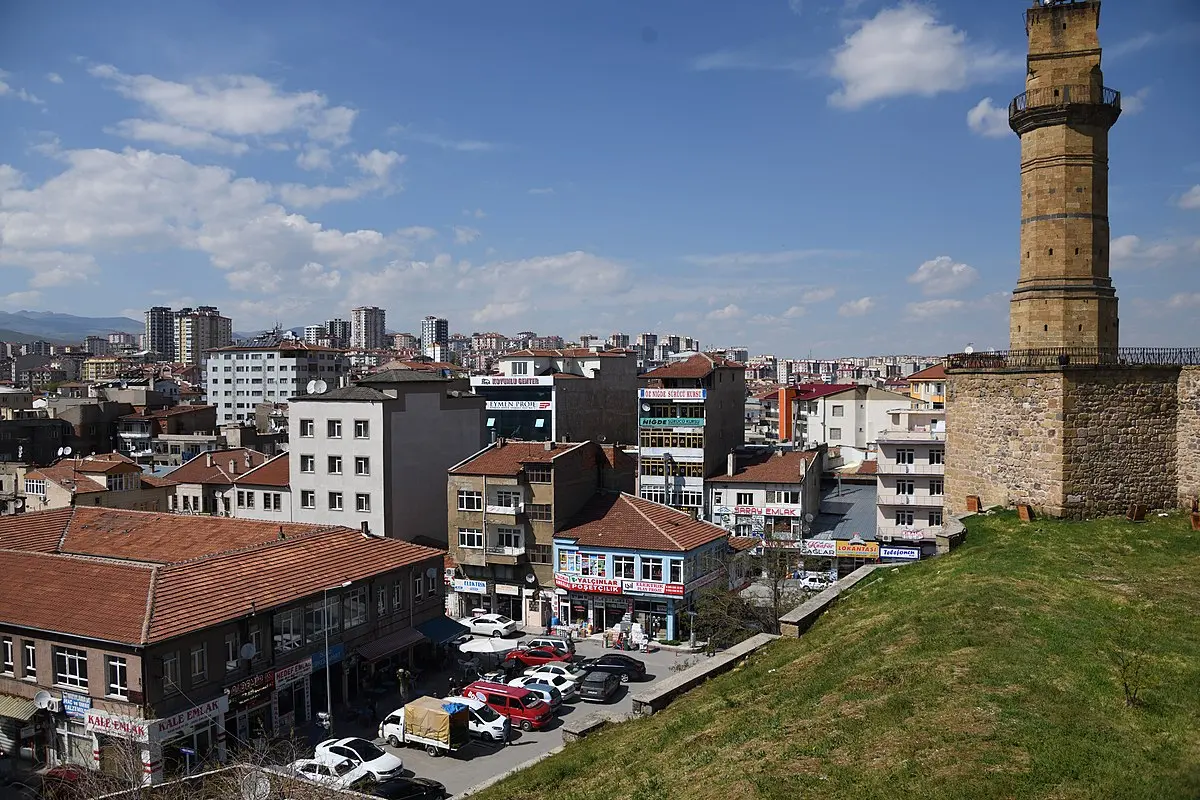Education in Turkey
Turkey, a country that bridges Europe and Asia, is not only known for its rich history, diverse culture, and stunning landscapes but also for its robust education system. Whether you’re planning to move to Turkey, are an expatriate looking to enroll your children in school, or are just curious about the country’s educational landscape, this guide will provide you with a comprehensive overview of education in Turkey. This article is designed to be engaging and informative, catering to travel enthusiasts and those interested in Turkey’s educational scene.
Overview of the Turkish Education System
Turkey’s education system is structured and regulated by the Ministry of National Education (MEB), ensuring a standardized and quality education across the country.
Primary and Secondary Education
Education in Turkey is compulsory for children aged 6 to 18 years and is divided into three main stages: primary education, lower secondary education, and upper secondary education.
Higher Education
Turkey boasts a rich array of higher education institutions, including universities, vocational schools, and research centers. The country is home to several prestigious universities, offering a wide range of programs in both Turkish and English.
Primary Education
Primary education in Turkey is the foundation of the country’s educational system, focusing on basic literacy, numeracy, and social skills.
Curriculum and Structure
Primary education, known as “ilkokul,” typically starts at age 6 and lasts for four years. The curriculum includes Turkish language, mathematics, science, social studies, art, physical education, and foreign languages.
Teaching Methods
Turkish primary schools employ a variety of teaching methods, emphasizing interactive learning, group activities, and the use of technology in the classroom. Teachers play a crucial role in fostering a supportive and engaging learning environment.
Secondary Education
Secondary education in Turkey prepares students for higher education and the job market, offering both general and vocational pathways.
Lower Secondary Education
Lower secondary education, or “ortaokul,” covers grades 5 to 8. The curriculum builds on the foundations laid in primary school, introducing subjects like history, geography, biology, physics, and chemistry. Students also continue learning foreign languages, typically English.
Upper Secondary Education
Upper secondary education, known as “lise,” includes grades 9 to 12. Students can choose between general high schools, vocational and technical high schools, and Anatolian high schools, which offer a more rigorous academic curriculum. Upper secondary education culminates in the “Yükseköğretim Kurumları Sınavı” (YKS), the university entrance exam.
Higher Education
Turkey’s higher education system is diverse and dynamic, attracting students from around the world.
Universities and Colleges
Turkey is home to over 200 universities, both public and private. Prestigious institutions like Boğaziçi University, Middle East Technical University (METU), and Koç University offer a wide range of undergraduate, graduate, and doctoral programs.
Admission and Tuition
Admission to Turkish universities is highly competitive and primarily based on the YKS exam results. Tuition fees vary between public and private universities, with private institutions generally being more expensive. However, scholarships and financial aid are available for both domestic and international students.
International Schools
For expatriates and those seeking an international curriculum, Turkey offers a variety of international schools.
American and British Schools
Turkey has several American and British international schools, such as the Istanbul International Community School (IICS) and the British International School Istanbul (BISI). These schools offer curricula based on American and British educational standards, including the International Baccalaureate (IB) and Advanced Placement (AP) programs.
Other International Schools
In addition to American and British schools, Turkey also hosts French, German, and other international schools, providing a diverse range of educational options for expatriate families.
Language of Instruction
The language of instruction in Turkish schools varies depending on the type of institution.
Turkish Language Schools
The majority of Turkish schools use Turkish as the primary language of instruction. English and other foreign languages are taught as part of the curriculum, especially in Anatolian high schools and private institutions.
Bilingual and International Programs
Many private and international schools offer bilingual programs, with English being the primary language of instruction. These schools often provide an immersive language experience, helping students achieve fluency in both Turkish and English.
Special Education
Turkey is committed to providing inclusive education for students with special needs.
Special Education Schools
The country has a network of special education schools that cater to students with various disabilities, offering tailored programs and support services. These schools aim to integrate students into mainstream education whenever possible.
Inclusive Education Initiatives
Turkey has also implemented inclusive education initiatives, ensuring that students with special needs have access to mainstream schools with the necessary accommodations and support.
Adult Education
Turkey offers a range of adult education programs, helping individuals enhance their skills and knowledge.
Continuing Education
Continuing education centers, often affiliated with universities, provide courses in various fields, including language learning, professional development, and personal enrichment. These programs are designed to meet the needs of adult learners and support lifelong learning.
Vocational Training
Vocational training programs in Turkey aim to equip adults with practical skills and knowledge for the job market. These programs cover a wide range of industries, from technology and healthcare to tourism and agriculture.
Studying Abroad
Many Turkish students choose to study abroad, gaining international experience and exposure.
Popular Destinations
Popular study-abroad destinations for Turkish students include the United States, the United Kingdom, Germany, and Canada. These countries offer diverse educational opportunities and are home to many world-renowned universities.
Scholarships and Exchange Programs
Turkey offers various scholarships and exchange programs to support students studying abroad. The Turkish government, in collaboration with international organizations, provides financial aid and opportunities for students to gain global experience.
Educational Reforms
Turkey’s education system is continually evolving, with reforms aimed at improving quality and accessibility.
Recent Reforms
Recent educational reforms in Turkey have focused on updating curricula, enhancing teacher training, and increasing investment in educational infrastructure. These reforms aim to better prepare students for the demands of the 21st century.
Future Directions
Future educational reforms in Turkey are likely to focus on further integrating technology into the classroom, promoting STEM (science, technology, engineering, and mathematics) education, and expanding access to quality education in rural and underserved areas.
Challenges and Opportunities
While Turkey’s education system has made significant strides, it also faces challenges that present opportunities for improvement.
Educational Inequality
Educational inequality remains a challenge in Turkey, with disparities in access to quality education between urban and rural areas. Addressing this issue requires targeted investments and policies to ensure all students have equal opportunities to succeed.
Technological Integration
Integrating technology into the classroom is both a challenge and an opportunity. Expanding access to digital tools and resources can enhance learning outcomes and better prepare students for the digital age.
Practical Tips for Students and Parents
For students and parents navigating the Turkish education system, here are some practical tips to keep in mind.
Choosing the Right School
Research and visit potential schools to ensure they align with your educational goals and values. Consider factors such as curriculum, language of instruction, extracurricular activities, and school culture.
Understanding the Admission Process
Familiarize yourself with the admission requirements and application deadlines for schools and universities. For higher education, prepare thoroughly for the YKS exam and explore scholarship opportunities.
Supporting Student Success
Encourage a balanced approach to education that includes academics, extracurricular activities, and personal well-being. Support your child’s learning journey by staying engaged with their school and teachers.
Conclusion
Turkey’s education system is diverse, dynamic, and continually evolving. Whether you’re interested in primary and secondary education, higher education, or adult learning, Turkey offers a wide range of opportunities to suit various needs and preferences. By understanding the structure, strengths, and challenges of Turkey’s education system, you can make informed decisions and maximize your educational experience in this fascinating country.
As you explore the educational landscape of Turkey, you’ll discover a nation committed to providing quality education and fostering lifelong learning. From its prestigious universities to its inclusive special education programs, Turkey’s education system reflects its rich cultural heritage and forward-looking aspirations. So, whether you’re a student, parent, or educator, Turkey offers a wealth of opportunities to learn, grow, and succeed.
Embark on your educational journey in Turkey with confidence and curiosity, and experience the unique blend of tradition and innovation that defines this remarkable country.





